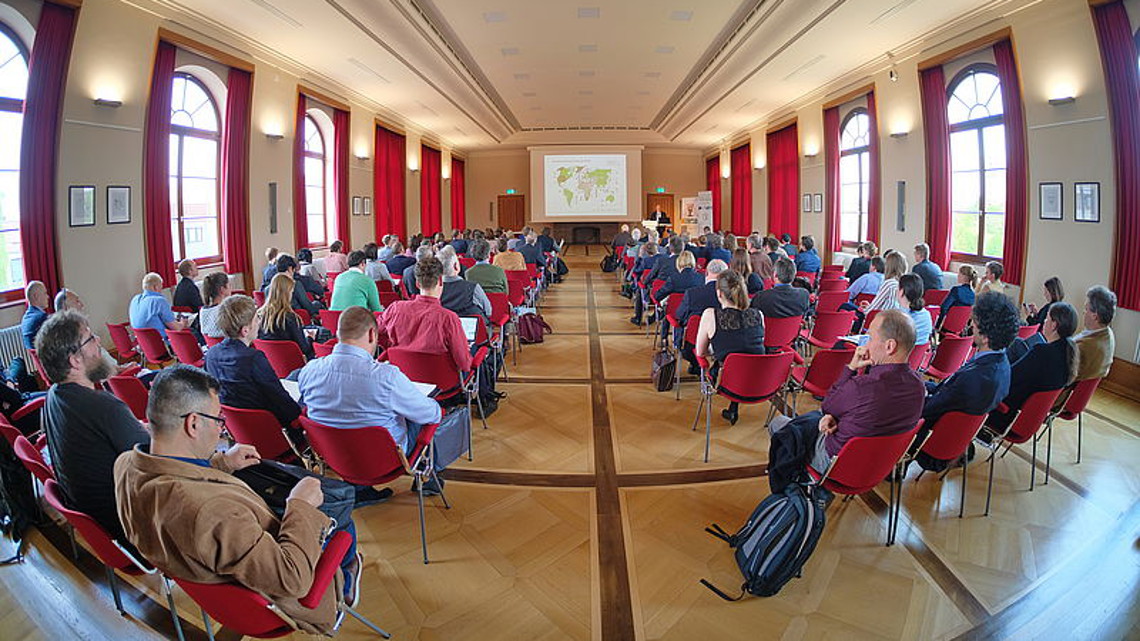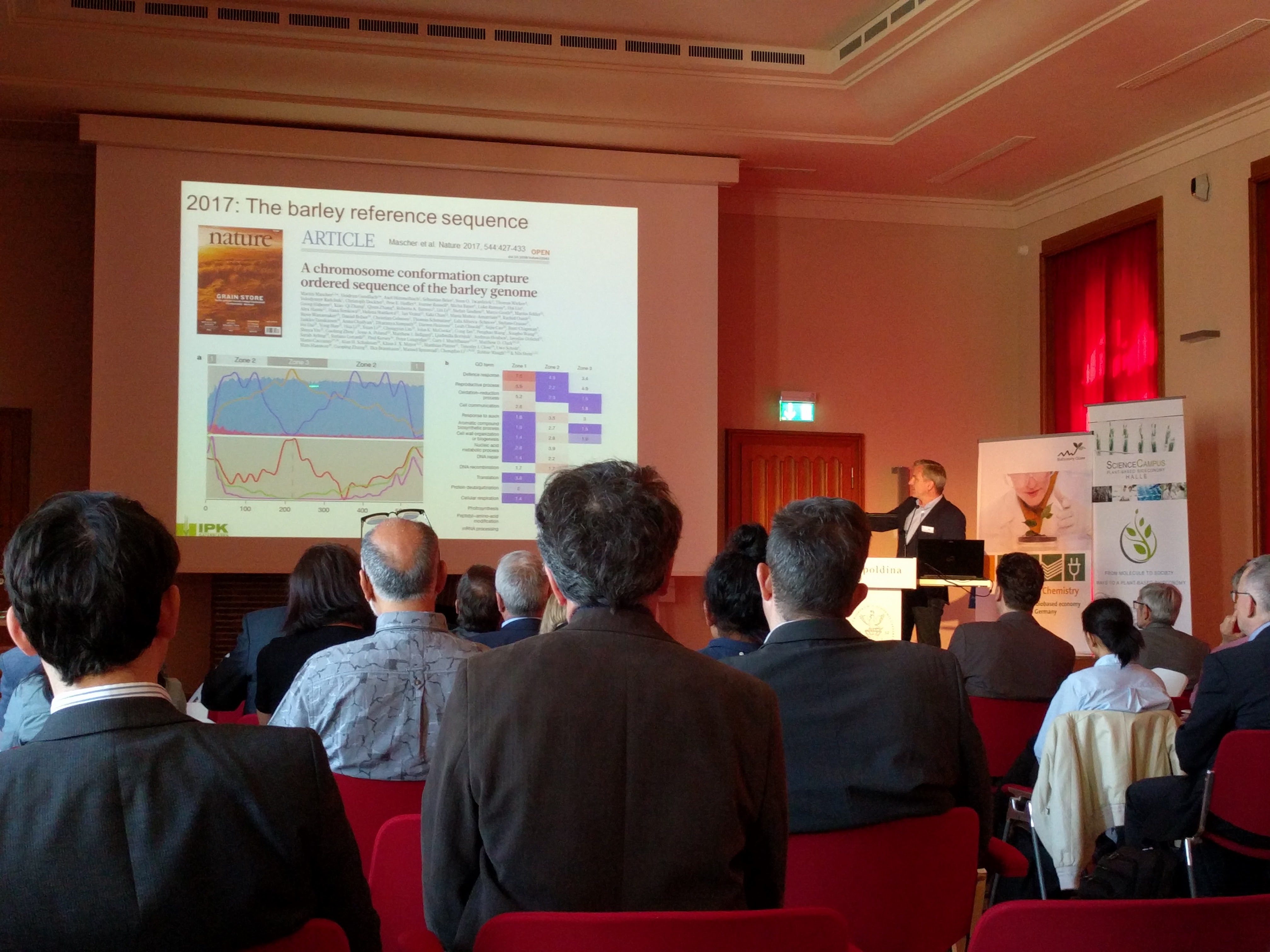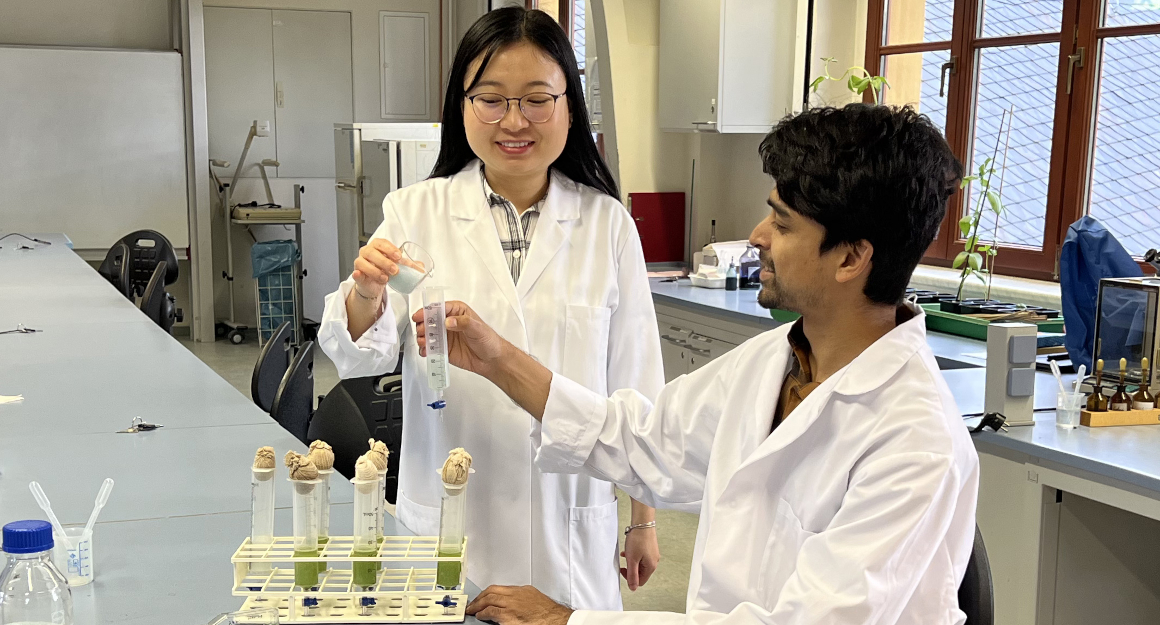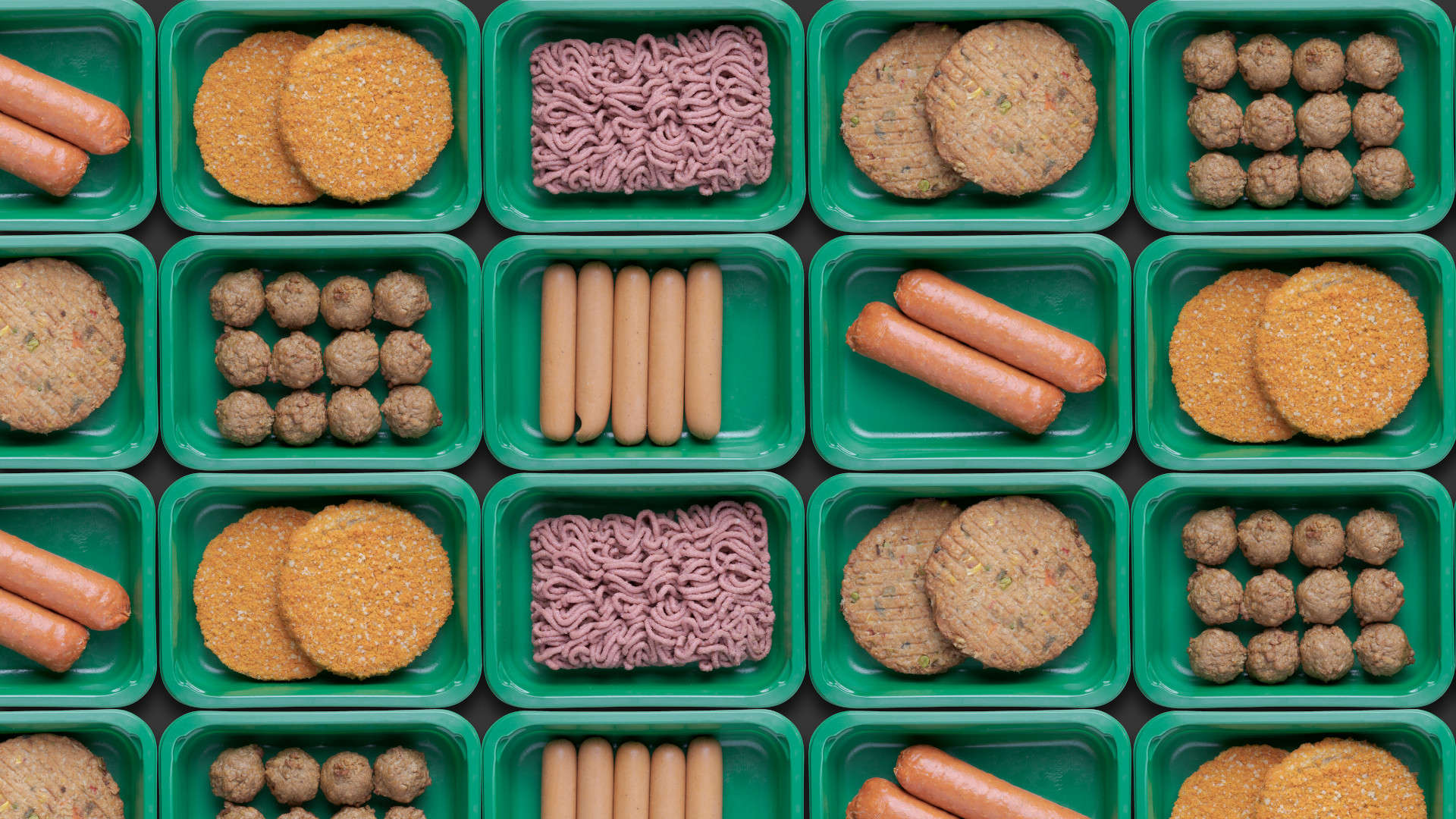Halle: Focus on circular bioeconomy
The sixth International Bioeconomy Conference in Halle put a spotlight on novel innovations for a bio-based economy. This year's partner country was France.

For the sixth time the “International Bioeconomy Conference” took place in Halle (Saale). The event was organized by ScienceCampus Halle – plant-based bioeconomy, and the leading edge "Cluster BioEconomy“, this year in cooperation with the partner country France. The venue for this year's conference on May 10 and 11 was the renowned German National Academy of Sciences Leopoldina. The goal of the meeting: linking current scientific break-throughs with future industrial applications.
Thinking in sustainable circles
After the president of the Leopoldina, Jörg Hacker, opened the meeting, long-time insider of European bioeconomy politics Christian Patermann followed with a comprehensive talk about the beginnings of the concept of bioeconomy and where we are today. Patermann highlighted: “Bio-based economy does not mean simply replacing fossil resources with renewable ones. Furthermore, it is not the biomass we are concerned about, it is the bio-function we seek to apply in industry. And last but certainly not least, we need to create true added value for the consumer in order to create a sustainable circular economy.”
For the first time this year's meeting also included a dinner event on day one. During this special event the focus was once again on sustainable and international cooperations between research and industry on order to offer consumers plenty of bio-based alternatives in the near future. Throughout the presentation research and industry were split in equal measures. Some of the topics were covering bio-based flavour enhancers, progress in cereal farming, the impact of the wood-based industry for bioeconomy, and harvesting plat oils. The invited French experts presented the key lectures of each session.
Barley genomics and breeding
During the sessions it became clear just how advanced research regarding bio-based production cycles has become. However, several times throughout the sessions technical and political limitations were also part of the discussion. For instance, Monika Spiller from the Swiss agribusiness company Syngenta introduced novel varieties of barley that are the result of hybrid breeding. Also following the acquisition of Syngenta by ChemChina the Swiss company aims to continue their hybrid breeding programme. “The new hybrid-based barley varieties lead to significantly higher yields”, says Spiller. Although these new cultivars could help to alleviate world hunger, their use is locally restricted.
Barley research was also the focus during the talk of Nils Stein from the Leibniz Institute of Plant Genetics and Crop Plant Research (IPK). His team recently deciphered the barley genome and published their results in the journal “Nature“. The new and detailed genome information and hybrid breeding approaches allow for countless new barley varieties that could lead to higher yields and disease resistances.
Nils Stein explains to the audience how he and his team deciphered the barley genome. Due to this new knowledge novel variants of barley that offer bigger yields or are pest-resistant are within reach.

The “Leading Edge Cluster BioEconomy” focusses in particular on wood as a resource for a bio-based economy. Dietmar Peters from the “Fachagentur Nachwachsende Rohstoffe” (FNR) highlighted the importance of a wood-based industry for a circular bioeconomy. Veronika Auer from the University of Applied Sciences Rosenheim on the other hand pinpointed to the different and sometimes competitive lobbies within the wood industry. Different types of wood are used for different types of industrial applications, which can lead to conflicts during cultivation and reforesting.
Strengthening window frames with beech wood
The experts at the conference agreed however, that there will be many novel applications for beech wood as part of the bio-based industry. Until now this relatively tough and stable has hardly been used. Christian Fischer and his team at Schüco Polymer Technologies KG are already working towards using beech wood as a reinforcing material in window- and door frames as well as other products in the polymer and packaging industry. Udo Seiffert from the Fraunhofer Institute for Factory Operation and Automation (IFF) outlined what modern computing could do for a bio-based economy. For instance, because of the improved computing powers new and better sensors could be developed that in turn could be used as a rapid alert system against parasites.
The neccessity of bioinformatics
Ivo Große from the Martin-Luther University in Halle-Wittenberg also talked about the ever-increasing link between bioinformatics and basic research in the life sciences. The bioinformatician illustrated the incredible expansion of computing and processor power when it comes to data analyses. Nevertheless, he also highlighted that even with the ability to sequence genomes within a very short amoutn of time, the human post-analysis of the data should not be negelected or even forgotten. Throughout the entire conference in Halle the extensive scale and diversity of bioeconomy both regionally and internationally became apparent. At the same time as the meeting the French company Global Bioenergies opened a new plant producing bio-isobutene in Leuna. The next „Internation Bioeconomy Conference“ will be in 2018: this time bioeconomy experts from near and far will meet on June 6 and 7 in Halle.
jmr


